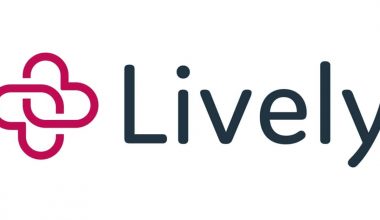A wage garnishment occurs when a court orders an employer to take money out of an employee’s paycheck and turn it over to a debt collector. It is commonly used to collect back payments on consumer bills, student loans, and child support. A court or government body will issue a “writ of garnishment” to businesses that have employees who are being garnished. After a garnishment order has been issued, it is the responsibility of the employer to compute, withhold, and remit the funds to the appropriate creditor or agency on a regular basis. Wage garnishment can be a headache for both you and your payroll department. Plus the costs of noncompliance can be high. Hence, we’ve put together this piece to help you better comprehend the garnishment of wages, how it relates to student loan(s), and how to stop using a lawyer.
What is Wage Garnishment?
Wage garnishment is a legal process whereby an employer is tasked to withhold a part of an employee’s salary to pay off the unpaid debt. It alludes to a legal procedure that directs a third party to take money out of a debtor’s paycheck or bank account on their behalf.
Simply put, garnishment is a way to get money from someone who has unpaid debts. A court or government body may require you to deduct additional funds from an employee’s paycheck if they owe money. The employee’s debts will then be paid with the money that was withheld.
The third party (the garnishee), is generally the debtor employer who will make certain that the garnishment works. Meanwhile, U.S. law makes it illegal for an employer to fire an employee only to avoid having to comply with a garnishment order.
In most cases, garnishment of wages is employed to settle debts like child support payments, monetary fines, unpaid taxes, as well as defaulted student loans.
How Do Garnishment of Wages Work?
Those who fall behind on their bills and whose creditors take a hard line in trying to recoup their money may have their wages garnished. A parent may be found in contempt of court, for instance. If they refuse to pay their court-ordered share of child support and end up falling farther and further behind.
If a judge determines that one parent is severely delinquent in child support payments, that parent’s employer may be ordered to take a specified amount from each paycheck and send it to the other parent until the arrears are paid in full. Garnishment of wages in most cases generally requires court orders. However, in some cases, the government can take money out of your paycheck automatically if you owe enough.
The sum basically depends on the debtor’s income, the kind of debt, and the extent to which they have fallen behind on their payments. Generally, it is determined as a share of after-tax income.
What Are Examples of Garnishments?
Wage garnishments are deductions that a court orders an employer to take out of an employee’s pay in order to settle a debt or other legal obligation. Common reasons for garnishment of wages include child support and defaulted loans. Or perhaps other financial obligations such as unpaid taxes or credit card debt, medical costs, and outstanding court fees.
How to Stop a Garnishment of Wages
Generally, you can stop a garnishment of wages or bank accounts by making full payments of the debt, filing an objection with the court, or perhaps declaring bankruptcy.
Your creditor may sue you to collect a debt if you have ceased making payments. When this happens, the creditor can ask the court to take money directly from your paycheck or bank account to settle the debt.
However, a garnishment can really put a damper on things if you’re already having trouble meeting your financial commitments. Thankfully, you can take action to prevent garnishment from further damaging your finances.
Oh you are wondering how this works, below are options and ways to stop garnishment of wages to consider
#1. Pay Off the Debt
Paying off the debt may be impossible if you are in a really precarious financial position. However, if you are able to come up with the funds through other means, paying off the debt will eliminate the need for a garnishment.
You can combine your debt with another loan, borrow from loved ones, or do a combination of the three. The second choice won’t wipe out your debt entirely. Nevertheless, it will cover your initial loan repayments and serve as a fresh start.
However, only consolidate your debt if you’re confident you’ll be able to afford the monthly payments on the new loan. If you don’t pay your bills on time, it will only hurt your credit score more in the long run.
#2. Work With Your Creditor
Instead of your original lender, you may now be corresponding with a debt-collecting agency or law company. Since these organizations or businesses generally buy debt for pennies on the dollar, they may be willing to negotiate with you.
If you’re facing legal action from a creditor, it’s best to talk to them first to see if you can work out an alternative to garnishment that avoids court involvement. For instance, if your financial situation warrants it, you could request a payment plan that’s tailored to your specific circumstances.
It’s also possible to negotiate a reduced settlement of your debt. However, this is often only possible with a single, large payment of the settlement amount. To aid in the negotiations, you can use a debt settlement company or legal counsel. In light of the potential dangers to your credit score from such organizations and the prevalence of scams involving them, it may be prudent to seek the advice of a credit counselor instead. You can begin with the help of the National Foundation for Credit Counseling.
Nevertheless, it is important to keep in mind that creditors may be less receptive to these alternatives before a garnishment is in place compared to the certainty of court-ordered payments.
#3. Challenge the Garnishment
If a court rules against you, it must give you a copy of the ruling and advice on how to appeal. It’s crucial to move quickly because the deadline for submitting an exemption application varies from one jurisdiction to the next.
If the debt is not yours or the amount is wrong, for instance, you could possibly get the garnishment overturned. If you think the garnishment of wages is improper, you can file an objection.
# 4. File for Bankruptcy
Filing for bankruptcy would generally put a stop to every garnishment proceeding. However, this should only happen if you find yourself in a terrible financial position and that it’s your only option.
You may be eligible for a reorganized payment plan that better fits your budget, while you may also have to sell off assets to clear off some of your debt before the court discharges the rest of your obligation.
Regardless, before filing for bankruptcy on your own, you should discuss your options with a bankruptcy lawyer.
#5. File a Claim of Exemption
Claiming that a portion or all of your wages is exempt from the garnishment is yet another option for avoiding or reducing the garnishment’s impact on your finances.
In the event that your wages are already being garnished in accordance with another order, for instance, the effect of any additional garnishments may be mitigated. Alimony, child support, Social Security, retirement, and disability income are only some examples of the sorts of income that are exempt from garnishments.
You might include evidence in your statement that garnishment will indeed make it difficult for you to pay for living expenses and support your family.
Garnishment of Wages Student Loans
Having student loans in default can lead to your loan servicer can take up to 25% of your disposable income through a process garnishment of wages. If you have defaulted on your student loans and haven’t made any payments in a while, your lender may start taking money out of your paycheck to cover the balance.
Hence, it is important for you to understand what it takes if it resorts to garnishment of wages but, try to avoid defaulting on your student loans.
Garnishment of wages generally occurs when a loan holder requests that an employer deduct money from an employee’s paycheck to cover a debt, such as unpaid student loans. The government can garnish your earnings if you fail to make payments on a federal loan for nine consecutive months. This might be different with private loans though as both may have different requirements.
Understanding Garnishment of Wages for Student Loans
Garnishment is one tactic normally employed to collect student loan debt. To start with, garnishment of wages is possible with federal student loans even without your servicer taking you to court. However, in order to garnish your earnings if you fail on private student loans, the majority of states demand that the loan company seek a court order.
In regard to federal student loans, wage garnishment may continue up until the full amount of your debt including interest and fees, has been repaid, but it may stop if your loan is taken out of default.
Payment on all federal loans in default has been temporarily suspended by the Department of Education though. But this suspension will end no later than 60 days after June 30, 2023. And when payments are resumed, all federal loans will be put back into good standing.
How Much Can Be Garnished for Student Loans?
Generally, the law permits garnishment of up to 25% of your discretionary wages. This will help repay private student loans, while the federal government can take up to 15%.
These restrictions apply to the whole. So, in the event of a default on numerous loans held by different companies, the total amount of income garnished by all of them cannot exceed the limit.
How to Stop Student Loans Garnishment of Wages
When it comes to federal student loans, you have protections against having your wages garnished. If the U.S. Department of Education intends to garnish your wages within the next 30 days, for instance, it must provide you with advance notice of this action and any relevant debt information. There are additional documents pertaining to your student loan debt that you can access.
Furthermore, there is a wealth of options available to you to prevent garnishment of wages due to unpaid student loans. You may;
- Agree and go into a voluntary repayment
- Challenge the garnishment and request a hearing
- Consolidate your loans
What Is Garnishment of Wages and How Can It Destroy Your Credit?
With regard to credit, the damage has already been done. Your credit may have taken a hit. Nevertheless, it was the deferred payments on your loans that did the most damage. If you’re having money taken out of your paychecks to cover your debts, your score has probably taken a hit.
How Many Types of Garnishment Are There?
Federal law-based garnishments and state-law-based garnishments are the two different forms of garnishments. Bankruptcies, creditor garnishments, federal tax levies, federal administrative garnishments, and federal student loans are all examples of federal garnishment of wages. State laws control garnishments, on the other hand, including those for child support, alimony, state, and local taxes, as well as those for state student loans.
Garnishment of Wages Lawyer
The loss of money from each paycheck can cause serious financial problems. So it’s often necessary to retain a lawyer to put a halt to the garnishment in order to stop the deduction of wages from each paycheck. A lawyer may be able to stop garnishment of wages more quickly in some jurisdictions than in others. Hence, it’s important for an employee to get legal guidance about the specific laws in their state.
Up until one pays the debt in full, dealing with a garnishment is terrifying. But it’s crucial to make sure the lawyer knows all the details concerning the garnishment of wages. This should be immediately you get in touch with him or her to perhaps try to avoid the income loss or stop it. The worker might need to talk to their employer about the specifics. Others could use a free credit report to search online. Some people may receive correspondence in the mail informing them of the agency’s crucial information as well as whom to contact for more information. This information given to the lawyer may increase the likelihood of avoiding or stopping garnishment of wages from occurring or continuing.
Conclusion
Generally, when an individual owes money, a wage garnishment allows the court to have some or all of their paycheck withheld by the employer. However, learning that you must garnish an employee’s salary is never a pleasant experience. It’s also important to know when you need to do things, take action, and what you need to do. The best line of action is usually to speak with a lawyer who has experience in garnishment of wages situations, as state regulations can add another degree of complication.
Child support payments, student loans, and other debt commitments are common examples of garnishments of wages. Whatever the sort of garnishment, however, workers have protections under the law that limit what their employers may and cannot do with their paychecks.
Related Articles
- GARNISH WAGES: Meaning and How It Works
- IRS Attorney: Salary, Jobs, Fees, Best Options & All You Need
- LIVING WAGE: Meaning & Benefit
- Student Finance: A Complete How-to-Apply Guide
- FICA TAXES: What It Is, Rate and How to Calculate It
- 48 LAWS OF POWER: About & Full List






